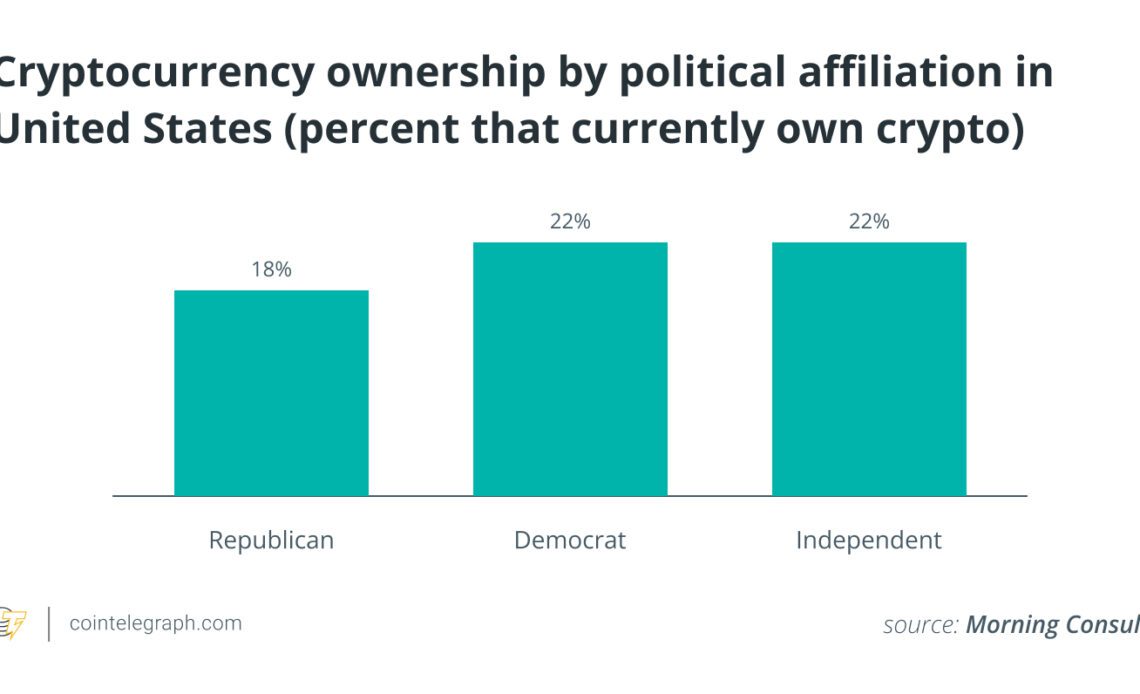Crypto’s legitimacy and adoption have increased in recent years, and along with the uptick in use, the tech has become a topic of political divisiveness, resulting in a perception of partisanship — especially in the United States.
Speaking to Cointelegraph, Jonathan Jachym, the Global Head of Policy at U.S.-based crypto exchange Kraken, said he doesn’t think crypto is partisan and that the situation is far more nuanced.
He says crypto tech is fundamentally about financial empowerment, the ownership of assets and the decentralization of power structures.
“These are non-partisan issues which legislators across the globe face daily as their constituents navigate the challenges of the existing financial system,” Jachym said.
“Technology can be used to build a fairer, trustless, apolitical financial system, which is more efficient, transparent and secure for everyone. Now is the time to embrace crypto,” he added.
Nearly even split of crypto support among politicians and voters
According to Coinbase’s Legislative Portal, which tracks U.S. politicians who have made positive statements about crypto, there is a healthy number of crypto supporters in Congress on both sides of the political aisle, with 26 Republicans and 22 Democrats in the House of Representatives voicing support.
In the Senate, it’s slightly skewed toward the right, with 24 Republicans and only 11 Democrats making positive statements about crypto. Support for crypto among voters also appears to be a close split between the left, right and independents.
According to a Feb. 27 national survey conducted by business intelligence company Morning Consult, 22% of Democrats, 18% of Republicans and 22% of Independents said they own crypto.
Jachym believes bad actors have sown division in the space, but overall he says crypto itself remains an inclusive, transformative technology with the potential to improve lives.
“This is why, regardless of the political consensus of their populous, many developed economies are advancing bespoke regulatory regimes for crypto assets,” he said, adding, “For example, at the state level within the United States, both ‘red’ and ‘blue’ states have made meaningful progress toward workable frameworks for crypto.”
Bipartisan support for crypto already happening
There have already been some examples of bipartisanship among politicians with forming the Congressional Blockchain Caucus on Sept. 26, 2016, through cooperation by Democrats and…
Click Here to Read the Full Original Article at Cointelegraph.com News…
























